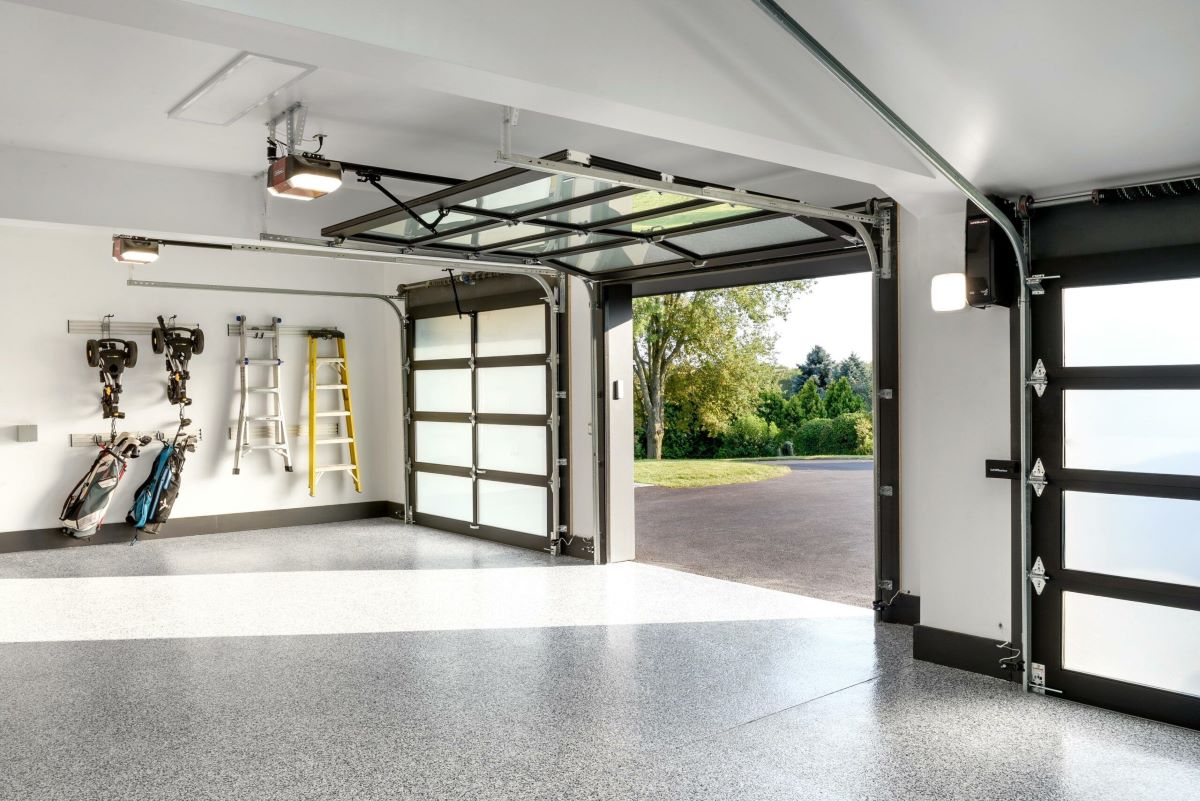
Choosing the right floor coating for a garage is crucial not only for enhancing its appearance but also for ensuring its longevity and functionality. The ideal garage floor coating offers resistance to oil spills, chemicals, and abrasion, significantly improving the space’s durability and maintenance. In this discussion, we will focus on two main types of coatings: polyurethane floor coating, widely recognized for its toughness and versatility, and epoxy floor coating, known for its exceptional durability and resistance to chemicals.
Types of Garage Floor Coatings
Epoxy Floor Coating
- Definition: Epoxy is a thermosetting resin applied as a coating. It is formed when one part epoxide resin is mixed with one part polyamine hardener. The hardener acts as a catalyst, giving epoxy its strength.
- Pros:
- Extremely durable and resistant to impacts, chemicals, stains, and surface abrasion.
- Provides a seamless and smooth finish that can hide minor imperfections in the concrete.
- Available in a variety of colors and patterns, allowing for custom designs.
Polyurethane Floor Coating
- Definition: Polyurethane is a thermosetting polymer known for its flexibility and resistance to UV radiation. It is often used as a topcoat over epoxy for added protection.
- Pros:
- Offers greater resistance to UV light, preventing the coating from yellowing over time.
- More flexible than epoxy, making it more resistant to scratches and similar damages.
- Exhibits superior resistance to chemicals, solvents, and oils.
Benefits of Applying a Coating to Your Garage Floor
- Durability and Longevity: Both polyurethane and epoxy floor coatings provide a hard, durable surface that can withstand the rigors of garage use for years.
- Ease of Maintenance: Coated floors are much easier to clean. Spills can be wiped up quickly, and the surface resists stains and moisture.
- Safety: Many garage floor coatings have anti-slip additives, making the garage safer to use, especially when wet.
- Aesthetics: A coated floor can significantly improve the appearance of a garage, transforming it from a solely utilitarian space to one that can be used for a variety of activities.
- Increased Property Value: A well-maintained, aesthetically pleasing garage floor can be a selling point, potentially increasing the overall value of the property.
What About Polyurethane Coating For Your Floor?
Polyurethane coatings are increasingly popular for garage floors due to their unique properties. When considering a coating material, durability, maintenance, visual appeal, and the application process must be considered. Polyurethane stands out in several key areas.
Durability
- Polyurethane vs. Epoxy: Polyurethane is more flexible than epoxy, allowing it to absorb impacts and resist scratches more efficiently. This flexibility means it can better withstand the daily movements and temperature fluctuations that floors often experience without cracking.
- Resistance to Chemicals and Solvents: Polyurethane coatings excel in resisting various chemicals and solvents, making them ideal for garages where oils, gasoline, and other substances might spill.
Maintenance
- Ease of Cleaning: This type of coating is remarkably easy to maintain. Its surface does not stain easily and can withstand heavy cleaning agents without losing its sheen or color.
- Long-term Maintenance: Polyurethane-coated surfaces require less maintenance over time than other coatings. They do not need frequent reapplications or extensive surface preparation for touch-ups.
Visual Appeal
- Aesthetic Flexibility: One significant advantage of polyurethane is its versatility in finishes. It can be applied in various colors and achieve a range of finishes, from matte to high gloss.
- UV Resistance: Unlike some other coatings, polyurethane is highly resistant to UV rays, preventing the color from fading or yellowing over time. This characteristic ensures that the floor maintains its visual appeal longer.
Application Process of Polyurethane Floor Coating
Applying polyurethane involves several critical steps to ensure maximum adhesion and longevity of the finish.
Surface Preparation
- Cleaning: The floor must be thoroughly cleaned to remove any dirt, grease, or existing coatings. This step might involve mechanical grinding or chemical treatments.
- Repairs: Any cracks or chips in the concrete should be repaired to create a smooth surface for coating.
Application
- Primer: Applying a primer is essential for ensuring a strong bond between the concrete and the polyurethane coating.
- Polyurethane Coating: After the primer has cured, the polyurethane coating is applied. Depending on the desired thickness and finish, this may involve multiple layers.
- Curing: The curing process is crucial for the floor’s durability. The coating usually takes a couple of days to fully harden.
Tips for Long-Term Maintenance of Your Garage Floor Coating
Maintaining your coated garage floor will extend its life and keep it looking new.
Maintenance Tips
- Regular cleaning: Sweep regularly and mop occasionally with a pH-neutral cleaner to remove dirt and debris.
- Immediate spill cleanup: Clean spills as soon as possible to prevent staining and deterioration of the coating.
- Avoid harsh chemicals: Harsh cleaners can damage the coating. Stick to recommended cleaning products.
- Use floor mats: Placing mats in high-use areas can reduce wear and tear on the coating.
- Regular inspections: Check for any signs of peeling, cracking, or wear and address promptly to prevent further damage.
Conclusion
A polyurethane floor coating offers an exceptional combination of durability, aesthetic versatility, and easy maintenance. By following best practices for application and upkeep, homeowners can enjoy a resilient, attractive garage floor that withstands the test of time and use.
